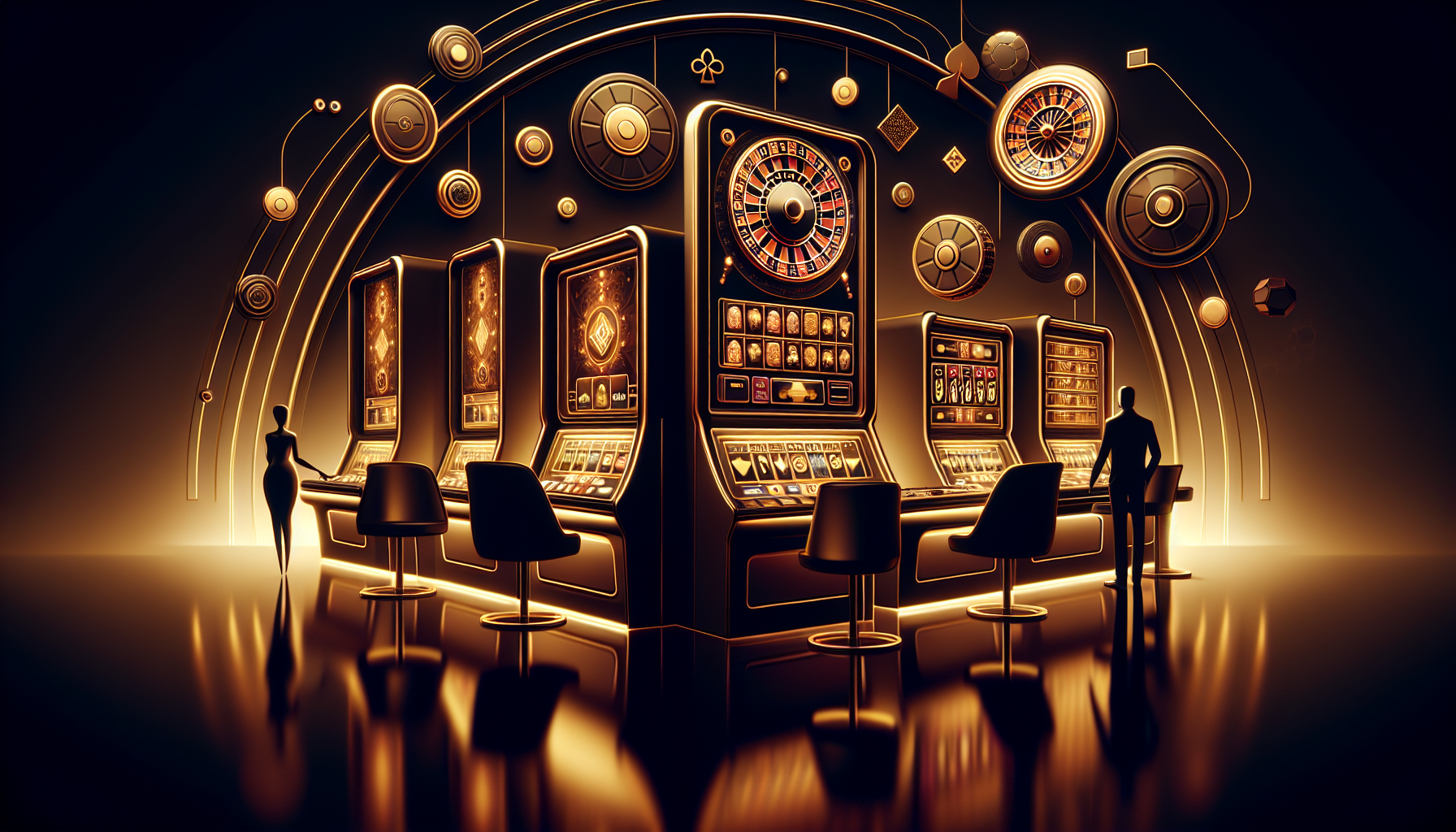
Understanding the probabilities behind popular casino games can significantly enhance your chances of winning.
The house edge is the mathematical advantage that casinos hold over you. It’s expressed as a percentage and represents the average amount of every bet you are expected to lose over the long run. For instance, a house edge of 5% means that, on average, you’ll lose $5 for every $100 wagered.
Slot Machines
Slot machines are the bread and butter of any casino, and their popularity hinges on their simplicity and potential for significant payouts. Understanding how they work can demystify their sometimes deceptive allure.
Each modern slot machine operates using a Random Number Generator (RNG). The RNG ensures that each spin is entirely independent of the last, making it impossible to predict outcomes based on past results. The RNG churns out thousands of numbers per second, and when you hit the spin button, it stops on a number that determines where the reels will land.
One useful metric for slot machines is Return to Player (RTP). RTP is the opposite of the house edge, indicating how much of the money wagered on a machine is paid back to players over time. For example, a slot with an RTP of 96% will return $96 for every $100 spent, on average. To optimize your chances, look for slots with RTP rates above 95%.
Blackjack
Blackjack is one of the few casino games where player decisions can significantly influence the outcome. Combining strategy with probability can turn the house edge in your favor.
In blackjack, each card dealt changes the deck’s composition, which impacts the odds. The basic strategy revolves around statistically optimal decisions. For example, always standing on a 17 or higher eliminates the chance of busting, statistically providing a better shot at beating the dealer.
Card counting is a more advanced strategy that can shift the odds in your favor. By keeping track of high and low-value cards dealt, you can approximate the remaining cards and adjust your bets and playing strategy accordingly. Card counting isn’t illegal, but casinos frown upon it, and getting caught can result in being asked to leave.
Roulette
Roulette is another staple casino game, offering a variety of betting options with differing probabilities and payouts.
The roulette wheel consists of either 37 (European) or 38 (American) numbered pockets. Simple bets, such as betting on red or black, offer nearly a 50/50 chance of winning. In European roulette, the house edge is roughly 2.7% due to a single zero pocket. In American roulette, the edge jumps to about 5.26% because of the additional double zero.
One popular betting strategy is the Martingale system, where you double your bet after each loss. This method assumes that eventually, you’ll win, covering all previous losses. However, this strategy demands a significant bankroll and carries the risk of hitting the table’s betting limit, which can result in substantial losses.
Poker
Poker is unique in the casino world because you’re playing against other players rather than the house. Probability plays a huge role, but so do psychology and strategy.
Understanding the odds of certain hands can significantly enhance your game. For instance, the probability of being dealt a pocket pair in Texas Hold’em is about 5.88%, while the odds of flopping a flush draw are roughly 10.94%. Knowing these odds lets you make informed decisions about whether to call, raise, or fold.
Pot odds are another essential concept – they represent the ratio of the current pot size to the cost of a contemplated call. Calculating pot odds and comparing them to the odds of completing your hand (drawing) can help you determine the profitability of your plays. Combine this with expected value (EV) calculations, and you have a robust framework for making decisions that should be profitable over the long term.
Craps
Craps can seem intimidating with its myriad of betting options, but breaking down the probabilities can make it more approachable.
The most straightforward bets in craps are the Pass Line and Don’t Pass bets. Pass Line bets have a house edge of about 1.41%, one of the lowest in the casino. Don’t Pass bets have an even lower edge at 1.36%. Understanding these basics can help you find comfort in the game’s simplicity.
Odds bets, which come into play after a point is established, have zero house edge. After making a Pass Line bet, you can place an Odds bet behind it. The combined house edge of the Pass Line and Odds bet decreases exponentially – an excellent opportunity to capitalize on.
Baccarat
Despite its reputation as a high-roller’s game, Baccarat offers some of the most player-friendly odds.
Baccarat primarily involves three bets: Banker, Player, and Tie. Betting on the Banker has the lowest house edge at about 1.06%, while Player bets aren’t far behind at approximately 1.24%. Tie bets should be avoided due to their substantial house edge of around 14.36%.
A straightforward strategy is to consistently bet on the Banker due to its slightly better odds. Keep in mind that most casinos take a 5% commission on Banker bets, but even with this fee, the odds favor this approach over the long run.
Applying Probability to Your Play
Understanding the probabilities and house edges behind casino games can empower you to make smarter decisions.
Understand the rules, strategies, and odds of the games you intend to play. Knowledge is your best weapon against the casino’s advantage.
Set a budget and stick to it. The primary aim is entertainment, and disciplined bankroll management can extend your playtime.
Utilize strategies that lower the house edge and increase your chances, such as optimal betting in blackjack or consistent bets in Baccarat.
Many online casinos offer free versions of their games. Use these to practice and get a feel for the math without risking real money.
Stay Calm and Composed. Emotional decisions can be costly. Stick with your strategy and avoid tilting when things aren’t going your way.

